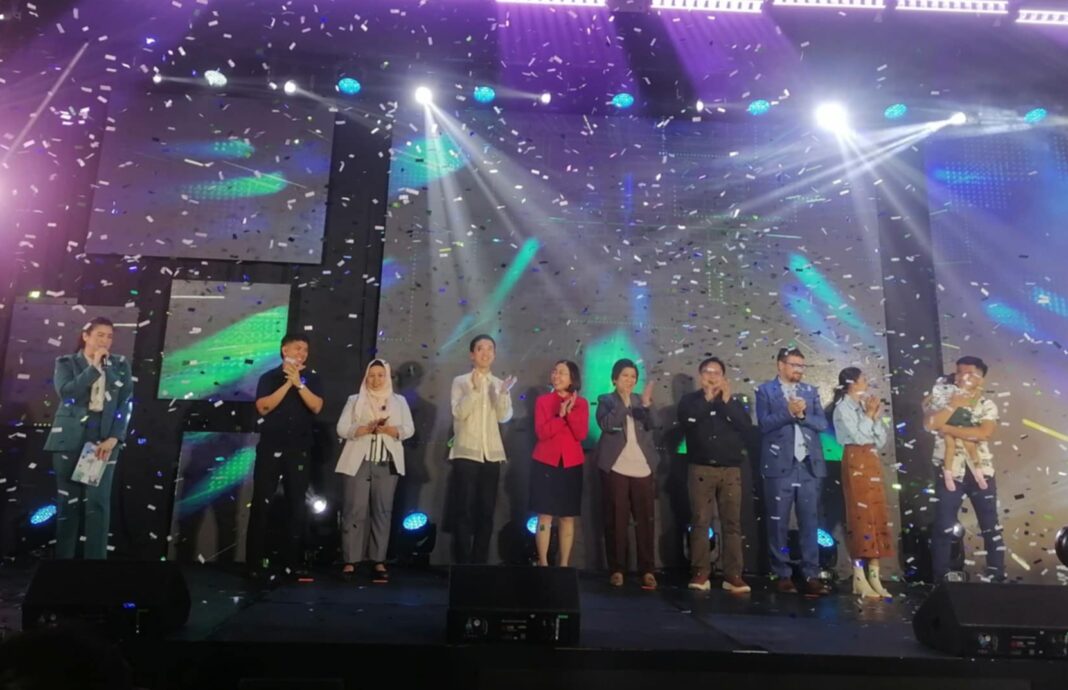By Perfecto T. Raymundo, Jr.
MANILA HOTEL — With funding from the Government of Japan, United Nations Children’s Fund (UNICEF) , in partnership with the Department of Health (DOH), on Wednesday (July 30) officially launched the DigiVacc digital immunization platform designed to enhance the management, tracking, and accessibility of vaccination records across the Philippines.
DOH Asec. Gloria J. Balboa said that the initiative supports the national goals of universal health care and digital transformation in the health sector.
Balboa added that DigiVacc aims to modernize and streamline immunization data systems by addressing challenges such as inefficient data collection, incomplete reporting, and difficulty tracking vaccination defaulters.
“The DOH is very excited to use this DigiVacc now. Yes. We are now into digitalizatiin,” Balboa said.
The platform includes two key applications such as VaccTrace and VaccCheck.
The VaccTrace is seen by the nurses and health workers.
Balboa said “DigiVacc is not only a platform, it’s for every child’s smarter immunization for a safer tomorrow.”
“It’s digital transformation that is an innovation but not a one-time solution where data can be obtained by policymakers,” she added.
The launch introduced DigiVacc’s features and real-world applications, highlight its integration with the national immunization registry, and strengthen partnerships with health agencies and institutions.
Minister Dr. Kadil Jojo M. Sinolinding, Jr.,
Ministry of Health-Bangsamoro Autonomous Region in Muslim Mindanao, said “DigiVacc makes the work of the health workers a lot easier.”
Sinolinding expressed his heartfelt gratitude to the Japanese government and to all those who made the project possible.
Minister Yokota Naobumi, Minister of Economic Affairs of Embassy of Japan, said “on behalf of the government of Japanese government, I would like to thank all the stakeholders for the successful launch of the project.”
“The people of Japan remain steadfast in helping protect and ensure the health of every Filipino child,” Naobumi said.
He expressed deep gratitude to all tbose who made the project successful.
“Rest assured that we will continue to support initiatives that will ensure the health of every child,” he added.
Edgar Donoso, Representative of UNICEF, Philippines, said “if children are vaccinated, they perform well and contribute to nation-building.”
“The digitalization of immunization has come to life,” Donoso said.
He thanked the Japanese government, the health workers and all the stakeholders that made DigiVacc possible.
Also present were DILG Asec. for International Affairs Lilia M. De Leon and Dr. Ayumi Fumiko.
The respective Municipal Health Office (MHO) of Tagcawayan, Quezon, Malay Aklan, Baclayon, Bohol, Surigao del Norte, and the Cotabato City Health Office in Region 12 also participated.
The people of Cotabato City are very mobile. They walk a lot. There is a continuity of work in the city.
Malay is one of the most densely populated towns in Aklan province.
The private health workers are the strong allies of the Malay MHO in their health program in the barangays.
Tagcawayan has 95 barangays and they are very vulnerable as they depend on DOH-deployed personnel.
Continuity of work and flooding are the challenges that Tagcawayan is facing.
Quality, accuracy and timeliness of the data are the challenges that the other MHOs are facing. ###







